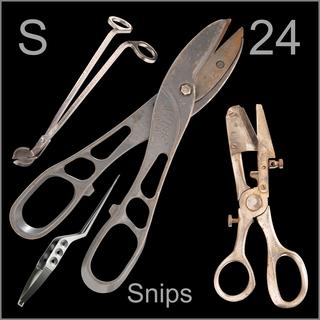 |
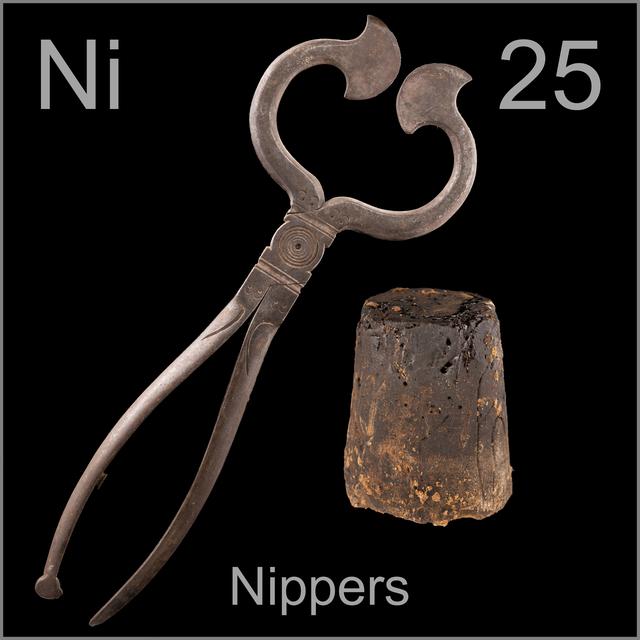
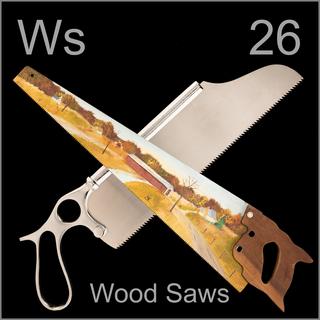 |
Leave a comment below! Or click on an individual tool to see more or leave a comment about that tool. |
|
 |
|
 |
| These are not nippers or cutters: they are pliers designed to reach into a link in a chain and pry it open. |
 |
| These bigger diagonal cutters don’t have bigger blades, just longer handles: they are for cutting thicker and harder wire. |
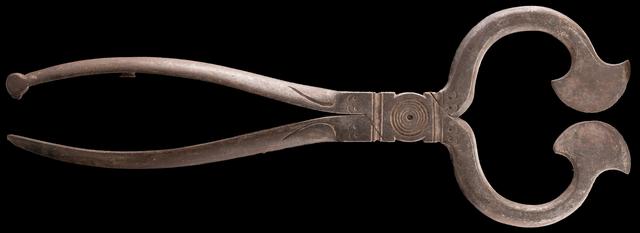 |
| If you put the blades of a diagonal cutter on sideways, you get a sugar nipper, a tool that was common in kitchens when sugar came in hard cones and had to be cut off bit by bit. |
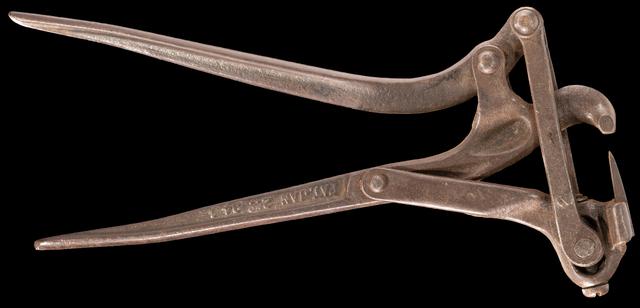 |
| This powerful anvil cutter is for trimming horse hooves (which are made of the same material as fingernails). |
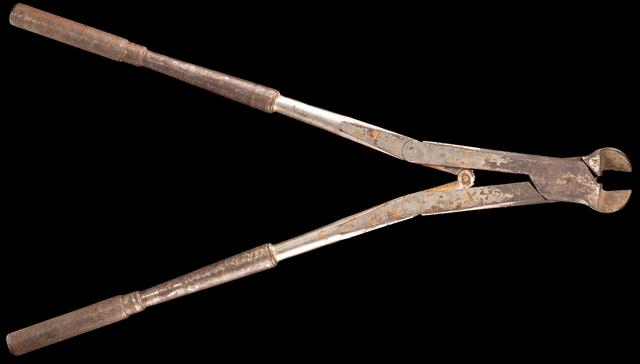 |
| These are among the most unpleasant diagonal cutters I have had the misfortune to encounter. They are for extracting molars (teeth) from horses, and work by spreading the space between two teeth, effectively ripping the teeth out sideways. Shudder. |
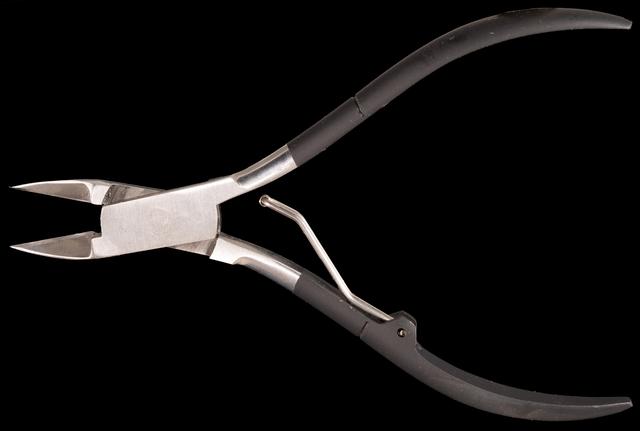 |
| Toenail Diagonal Cutter |
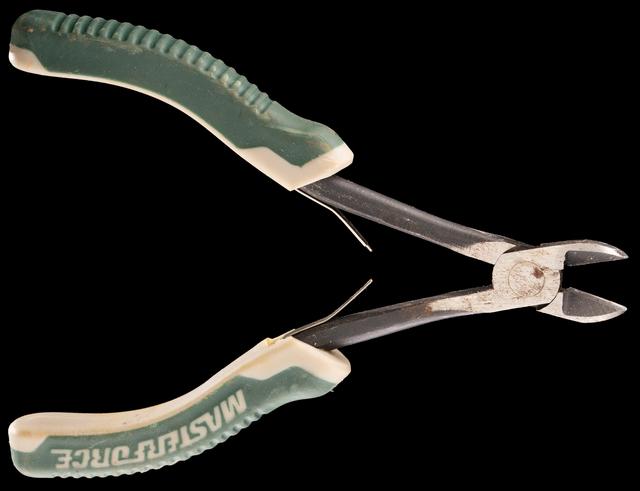 |
| Diagonal Cutter |
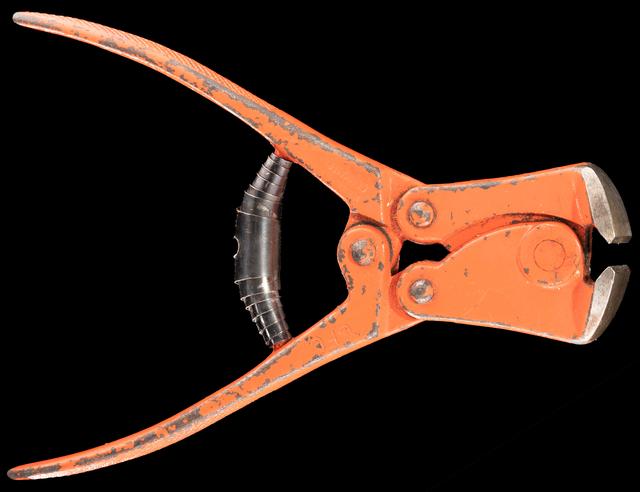 |
| These end nippers, meant for piano wire (a particularly tough type of steel wire, more like small steel bars) have a compound leverage mechanism that lets them squeeze extremely hard. |
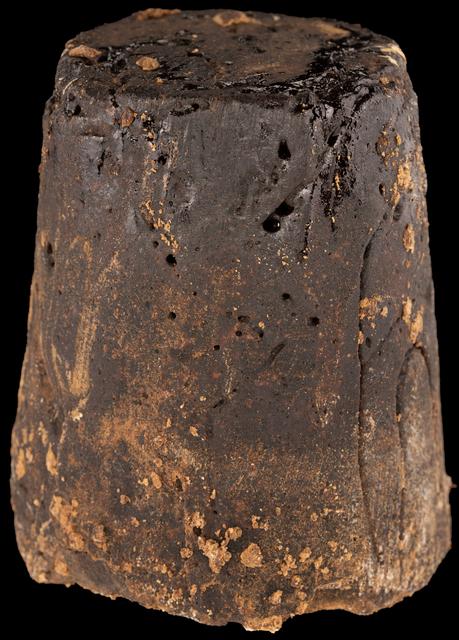 |
| Google “sugar cone” today and you’ll get nothing but ice cream cones, but if you googled the same term in the 1800s, before either ice cream cones or google were invented, you would have found these solid blocks of sugar, which is how much sugar was sold at that time. |
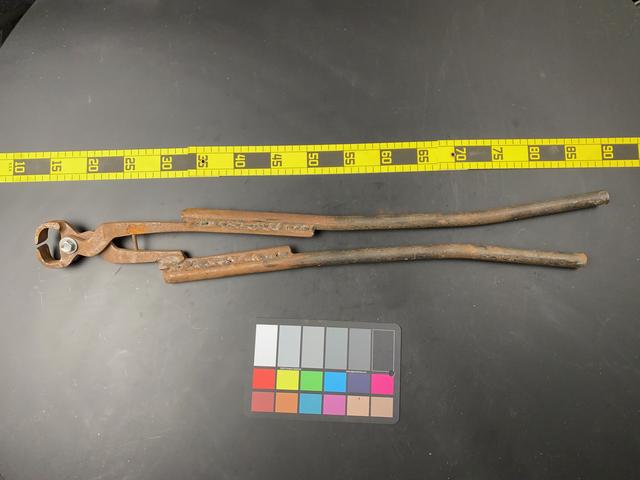 |
| Apparently someone wasn’t satisfied with the length of the handles on these end nippers, so they welded on some extensions. |
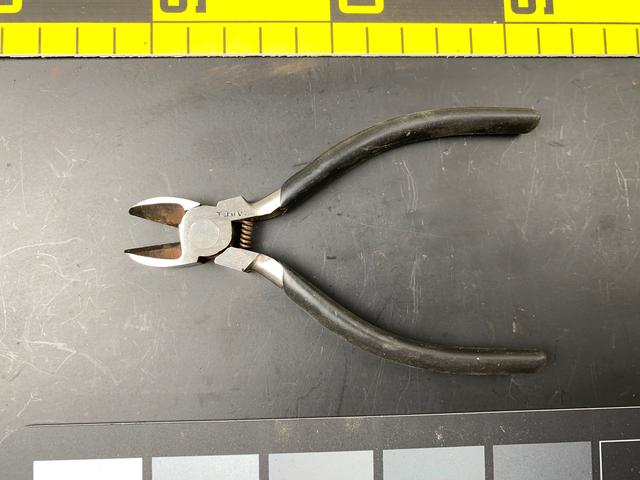 |
| Diagonal Cutters |
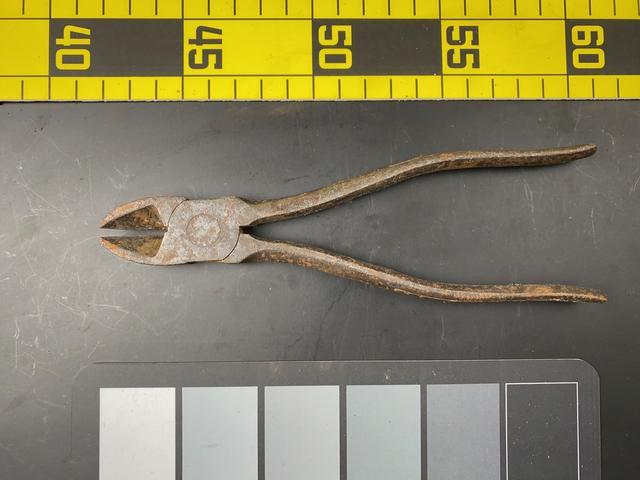 |
| Diagonal cutters |
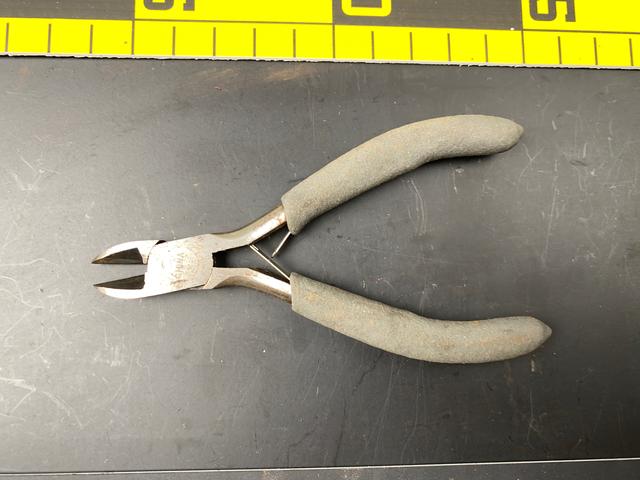 |
| Diagonal Cutter |
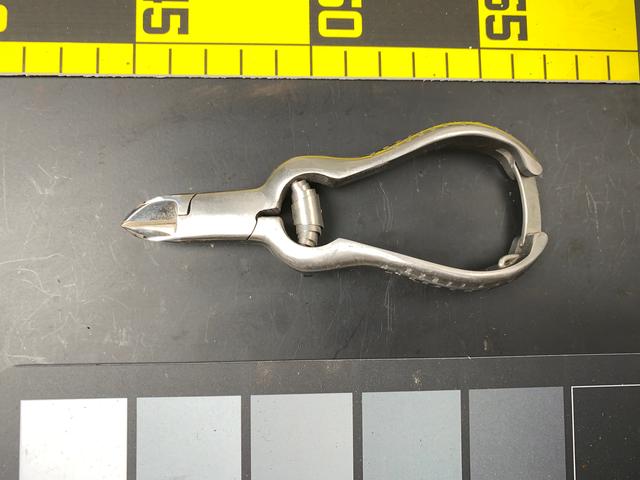 |
| Diagonal cutters for toenails and cuticle are popular in salons and bathrooms. |
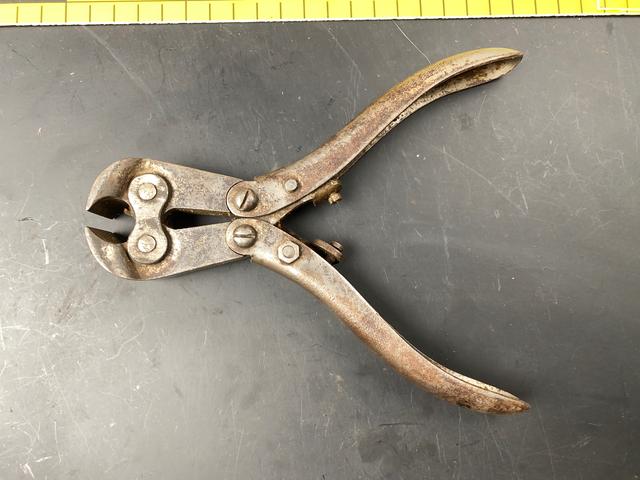 |
| End nippers are good for trimming off near a surface, or cutting the heads off nails. Compound leverage means the handles don’t have to be as strong, because the real force accumulates in the second joint. |
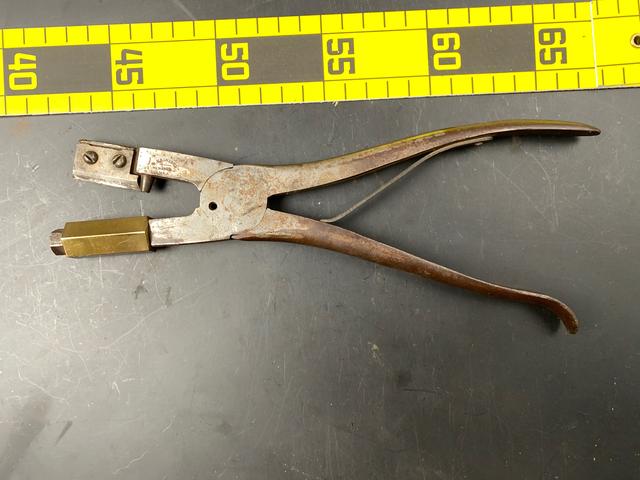 |
| This tool cuts button holes in leather (just like the similar tool we saw in the bypass cutters section, except this one is an anvil cutter). A depth stop (missing in this antique example) positions the hole a consistent distance from the edge. |
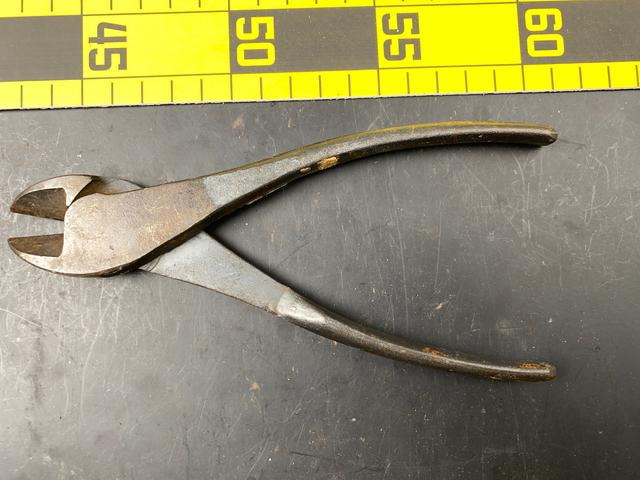 |
| Diagonal cutters are the most common of this class. They are tremendously useful for all kinds of wire cutting, and if they have hardened blades they can cut steel wire and nails quite easily. |
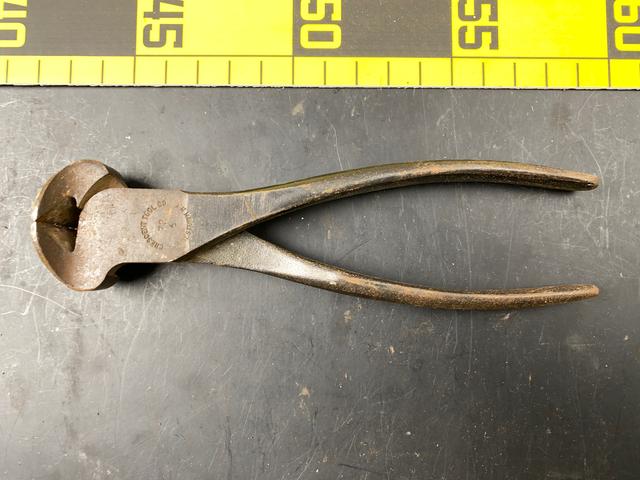 |
| End nippers |
Do you have a better example of this kind of tool? Let me know by leaving a comment, and include a picture of it if you can so everyone can see!